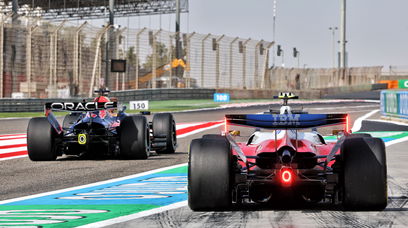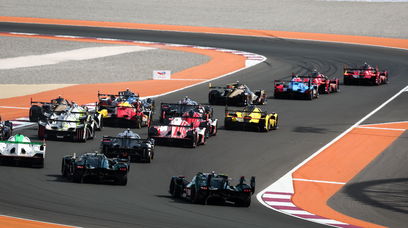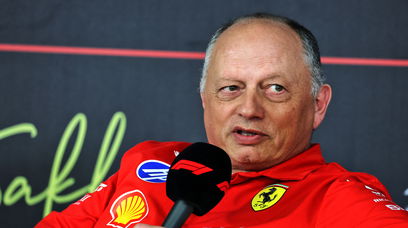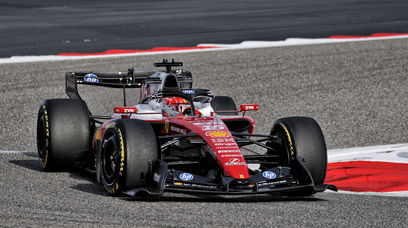The race stewards have decided against granting a right of review over the controversial incident between Max Verstappen and Lewis Hamilton on Lap 48/71 of the Brazilian Grand Prix. With the stewards initially ruling that Verstappen's stern defence did not require an investigation during the race, the release of the onboard footage from his car on Tuesday triggered a request from Mercedes to be granted a right of review. Having met with representatives of Red Bull and Mercedes in Qatar on Thursday, deliberations went on overnight before the verdict was announced ahead of the second practice session on Friday. The stewards have outlined the reasons why they decided against looking into the incident again, after an intensive assessment about whether Mercedes were entitled to a right of review.
Four key points are required
In order to trigger a 'Right of Review', Mercedes had to present four valid points required in the FIA's International Sporting Code. These four points are, namely, that the evidence presented was unavailable to the stewards at the time of the original decision, and that the evidence was new , relevant , and significant . The verdict ruled that Mercedes met the requirement for the ' unavailable ' point, saying: "It is undeniable that the footage was unavailable to the competitor at the time of the stewards' decision. Only a single channel of video from each car is available to the broadcaster and the stewards at any given time and during the incident on Lap 48, the camera selected on Car 33 [Verstappen] was the rear-facing camera. This then means that it is also unavailable to the competitor [Mercedes]. While not available live, all the other cameras are recorded onboard the cars and are available for download post‐race. This test is therefore met." The stewards also ruled that Mercedes met the requirement for ' new ', revealing that the team presented an example from the 2020 Austrian Grand Prix, where an onboard 360-degree camera angle that wasn't available initially resulted in a grid penalty for Hamilton. The stewards granted this second point. Mercedes met the third point of 'relevant' as well, after arguing that the new footage should be admissible as it was the only available footage to show the overall positioning of the cars and Verstappen's steering inputs. The verdict read: "While the stewards often have to make a decision with a limited set of facts, it is true that in making their review, the front-facing camera was one of the angles that the stewards looked for. The footage is a direct view of the incident, is not extraneous and is, therefore, in the stewards' opinion, relevant ."
A "significant" aspect
However, the stewards disagreed that the onboard footage represented a ' significant ' factor in their investigation. "At the time of the decision, the stewards felt they had sufficient information to make a decision, which subsequently broadly aligned with the immediate post‐race comments of both drivers involved," read the verdict. "Had they felt that the forward‐facing camera video from Car 33 was crucial in order to make a decision, they would simply have placed the incident under investigation - to be investigated after the race - and rendered a decision after this video was available. "They saw no need to do so. Mercedes' position is that this new footage provides sufficient information for the stewards to come to an altogether different conclusion than they did previously. "However, the stewards determine that the footage shows nothing exceptional that is particularly different from the other angles that were available to them at the time, or that particularly changes their decision that was based on the originally available footage. "In the judgement of the stewards, there is nothing in the footage that fundamentally changes the facts. Nor even does this show anything that wasn't considered by the stewards at the time. Thus, the stewards determine that the footage, here, is not significant ." With Mercedes not meeting all four of the required points of the ISC, the right to review was denied.
Most read







